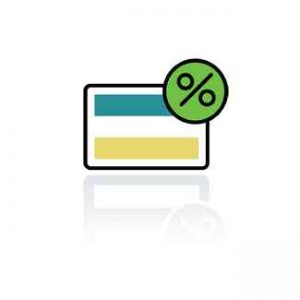 Your credit score is a determining factor in loan approvals. And if applying for a mortgage loan, a car loan or a private student loan, lenders will use your three-digit score to decide whether you qualify for financing, as well as your interest rate. Qualifying isn’t a problem if you pay your bills on time and have a high credit score. But if you have a history of late payments, defaults or perhaps a bankruptcy in your recent credit past, loan approvals are often contingent on rebuilding your credit and improving your score.
Your credit score is a determining factor in loan approvals. And if applying for a mortgage loan, a car loan or a private student loan, lenders will use your three-digit score to decide whether you qualify for financing, as well as your interest rate. Qualifying isn’t a problem if you pay your bills on time and have a high credit score. But if you have a history of late payments, defaults or perhaps a bankruptcy in your recent credit past, loan approvals are often contingent on rebuilding your credit and improving your score.
Talk to anyone who has applied for new credit with bad credit and they’ll tell you how difficult it is to get a credit card with a low score. However, you need credit to rebuild your credit. And while it’s challenging to get new credit with less-than-perfect credit, it’s not entirely impossible – as long as you know where to look.
Secured Credit Cards
Secured credit cards are by far one of the easiest ways to rebuild your credit. Getting approved for this type of card is easy because your credit history and score doesn’t factor into the decision. These types of credit cards are unique in that anyone can get an account. All you need is a security deposit forwarded to the bank that issues your secured credit card. This acts as a form of collateral and the bank deposits this amount into a savings account. The bank doesn’t touch this money, nor do you have access to these funds. The amount deposited into this account mirrors the credit limit on your secured credit card. For example, if you deposit $300 in your account, you’ll receive a credit card with a $300 limit.
Many banks that issue secured credit cards report to the credit reporting bureaus, which is perfect if you’re trying to rebuild your credit. Every reported on-time payment adds positive history to your credit file and positive history translates into a higher credit score. Understand, however, that some banks do not report to the bureaus. Talk with several banks first and ask whether the bank reports to all three credit reporting bureaus.
Unsecured Credit Cards
Secured credit cards aren’t the only option for rebuilding your credit. You can also apply for an unsecured credit card, which doesn’t require a security deposit. Unsecured credit cards are often reserved for people with good credit. But some banks do issue bad credit unsecured cards to help people with no credit and bad credit build a positive history. Although these cards do not require a deposit, they tend to feature upfront costs and carry higher interest rates.
Like secured credit cards, some banks that issue bad credit unsecured credit cards do not report to the bureaus. Only apply with banks that will update your reports on a monthly basis. This is crucial to rebuilding your score and opening the door to better credit offers in the future.
Once you acquire either a secured credit card or an unsecured credit card, always pay your statements on time and never carry a balance. Banks periodically evaluate account holders, and if you demonstrate excellent payment and credit habits, the banks may switch your secured credit card to an unsecured credit card, as well as lower the interest rate and increase the credit limit on a bad credit unsecured credit card.

